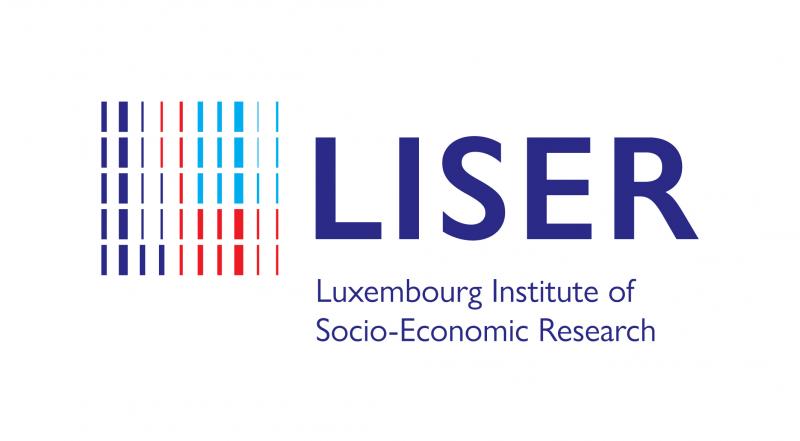PhD Candidate in Geospatial Data Science and Environment with a focus on Artificial Intelligence and Machine Learning (f/m) - Ref: 25-12
| ABG-131001 | Thesis topic | |
| 2025-04-14 | Public funding alone (i.e. government, region, European, international organization research grant) |

- Computer science
- Mathematics
- Digital
Topic description
Inspiration
Air pollution is continuing to rise. It harms human health, crops and species, and will harm forest trees in the coming decades (up to 2040 and beyond). Despite this, the exposure of forest trees to ozone (O3) and methane (CH4) has not yet been evaluated in Luxembourg at a fine spatial and temporal scale.
Innovation
The objectives of FORFUS-RT3.3 are: (a) to quantify O3 and CH4 across Luxembourg at a very fine spatial (e.g. 100m) and temporal resolution (daily/monthly), (b) to assess the temporal and spatial distribution and identify hotspots of O3/CH4 pollution in forested areas across Luxembourg, (c) to create a geospatial database of O3/CH4, crops, and (dead) forest trees by combining different complementary sources of information (e.g. remote sensing, satellite imagery, LiDAR, orthophotomaps), and (d) to build a decision support system (Dashboard) to evaluate the exposure of forests to O3/CH4 and thereby stakeholders in developing public policies to protect forests.
Impact
The scientific knowledge generated in this project will help identify the exposure of forest trees to air pollution, and overall, the causes of tree death. The understanding and methods developed as part of the project are expected to be useful for similar studies at different sites around the world, in order to provide a policy recommendation (action plan) for mitigating forest exposure to air pollution. In a nutshell, we will contribute to: (a) increasing scientific knowledge by sensing the environment in a new way using mobile-based technology (satellite S5P) and fixed-based sensor network (field work), (b) societal impact by developing a dashboard DSS tool for stakeholders and the research community, and (c) a new data input for the PRIDE-DTU, as well as to the national digital twin initiative.
Starting date
Funding category
Funding further details
Presentation of host institution and host laboratory
LISER is a publicly funded research institute located in Luxembourg and dedicated to applied empirical research in economic, social and spatial sciences. The Institute attracts top researchers from all over the world and high-level student training is a vibrant part of the Institute’s activities. LISER staff consists of approx. 200 employees, about 60% of the staff being researchers; mainly from the fields of economics, geography and sociology. The vision of the institute is to be a socio-economic research institute internationally recognised, focused on scientific excellence and societal impact, able to contribute through multi-disciplinary and intersectoral research, in an active and inclusive way to a sustainable and inclusive society at national and international level.
The institute is located on the new Belval campus in the south of Luxembourg (Cité des Sciences, Luxembourg), which hosts the University of Luxembourg and a substantial part of the country’s publicly funded research facilities, i.e. LISER, the Luxembourg Income Study (LIS) cross-national data centre, the Luxembourg institutes of Health (LIH) and of Science and Technology (LIST). Information on research in Luxembourg is accessible via the national EURAXESS platform.
Institution awarding doctoral degree
Candidate's profile
- Master's degree in Computer Science, Remote Sensing, Data Science, Mathematics, Statistics, or Geography ;
- Strong proficiency in Python is required ;
- Knowledge of remote sensing, GIS, and Copernicus data is a plus ;
- Excellent command of English.
Vous avez déjà un compte ?
Nouvel utilisateur ?
Get ABG’s monthly newsletters including news, job offers, grants & fellowships and a selection of relevant events…
Discover our members
 ASNR - Autorité de sûreté nucléaire et de radioprotection - Siège
ASNR - Autorité de sûreté nucléaire et de radioprotection - Siège  SUEZ
SUEZ  TotalEnergies
TotalEnergies  CESI
CESI  Aérocentre, Pôle d'excellence régional
Aérocentre, Pôle d'excellence régional  PhDOOC
PhDOOC  Tecknowmetrix
Tecknowmetrix  Laboratoire National de Métrologie et d'Essais - LNE
Laboratoire National de Métrologie et d'Essais - LNE  MabDesign
MabDesign  ONERA - The French Aerospace Lab
ONERA - The French Aerospace Lab  Ifremer
Ifremer  ADEME
ADEME  CASDEN
CASDEN  Groupe AFNOR - Association française de normalisation
Groupe AFNOR - Association française de normalisation  Institut Sup'biotech de Paris
Institut Sup'biotech de Paris  Généthon
Généthon  ANRT
ANRT  Nokia Bell Labs France
Nokia Bell Labs France  MabDesign
MabDesign





